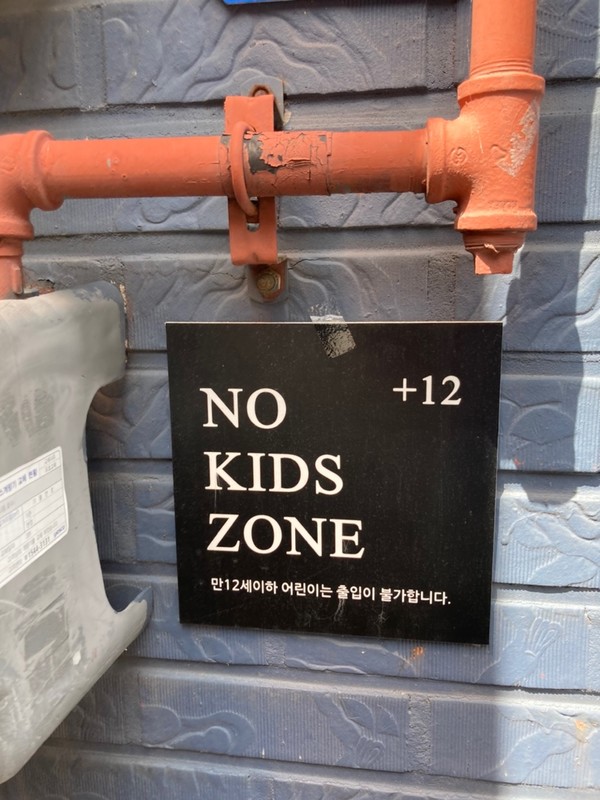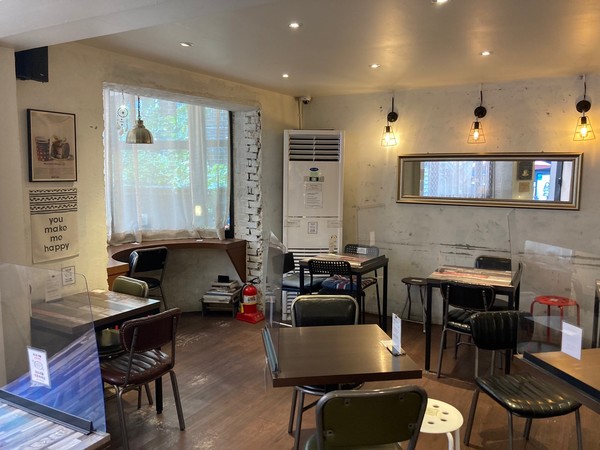On the Internet, debates over various kinds of hate have been heated up. The number of people suffering from nervous breakdowns in children's noise has increased, which has led to the phenomenon of avoiding children. In addition, the complacency of some parents has caused even greater animosity, and those who have been affected by it will consider the existence of children itself as a public nuisance. From an objective point of view, parents with a duty of supervision are more responsible than children with less experience in life, but in the end, victims naturally avoid children who cause trauma to them.
According to the statistics of the Apartment Noise Counseling Center under the Ministry of Environment on August 13, the center received a total of 42,250 cases of noise between floors last year. It is the largest number since the center opened in 2012, accounting for 20.4 percent of the total number of reports received in the past nine years. The number jumped 60.9 percent from 26,257 in the year before the spread of COVID-19.
Eo rin-i (the word “children”, in English)
Recently, it has been argued that putting “Rin-i” at the end of the word (which is the ending of the word “Children” in Korean) is a child-hating expression, and there has been a heated debate about this online. A public institution held an event to give gifts when someone posted a certified photo of starting a new work and a new hobby, regardless of age. In order to participate, the word “Rin-i” had to be posted along with the photo. Therefore, criticism has been raised that this expression encourages the prejudice that children are not used to something and are inexperienced.
Thus, a survey was conducted on Kyobo on how ordinary citizens view the use of expressions related to children, and positive and negative views were found to be tight. 31 percent of respondents (674 people) viewed the use of “Rin-i” negatively, while 26.2 percent viewed it positively. There is an opinion that it inappropriately uses the word’s meaning, considering them as independent beings such as adults. On the other hand, some insist that it is not a big deal, saying that this is just seeing beginners as cute just like children.
It seems difficult to overcome this because there is a difference in experience between those who favor the use of expression and those who oppose it. It is almost impossible to overcome these differences, but Korean society shows too much violence on the opposite side. Confrontation is especially severe when a similar number of people gather on both sides. The UOS Times looked at the confrontation of “children” from a different perspective.

No Kids Zone
"No Kids Zone" means the place where children are not allowed in. As infants and children are involved in accidents while running out of restaurants and cafes, business owners should compensate for large sums of money for their injuries due to negligence of management. Since it was children who caused the accident and parents who neglected to monitor it, store owners may be considered victims who compensated for what they did not have to. In a situation where damage has already been caused by the destruction of goods, the owner must endure psychological wounds if the parents are being bossy, considering “The customer is the king.” Therefore, a series of “No Kids Zone” businesses were introduced in Korea. The claim that the owner can decide on his or her own and the claim that parents and children have the right to rest collided, becoming a big issue. During this period, the perception that a child is a nuisance has also spread further in Korea.
College students tend to be more wary of damaging themselves than in the past, so they often give tremendous support to this particular system. The UOS Times asked for the opinion of a college student and her boss who works in the No Kids Zone, which is the most child-related and least child-related.
A store that sells cakes and desserts in Itaewon is a “No-kids zone.” There are many props, so young customers can get hurt, and there is a risk of product damage. When a customer drops food or makes a mistake, the owner often provides food again, even though it is not his or her fault. However, it is treated at some point as part of the service and, if not, as a low-level store. Therefore, from the point of view of the store owner who sells expensive products, it is inevitable that the children customers who pour out many dishes would feel like a burden. Similar to the shopkeeper, here.
There have been many other complaints. Nowadays, there are customers who just go back because “No Kids Zone” has become more common, but there are still customers who strongly protest it. Such customers think that business is so good that they do not receive family guests. However, it is quite heartbreaking for owners to give up their family guests. This is a dessert shop, but in the case of ordinary restaurants, the economic damage is even worse if they do not receive them.
The reporter thought that the interviewer would emphasize the free rights of the store, as she was a college student, and it is likely to think from the perspective of the store she works at. However, she expressed a different opinion than the conviction that this system was correct. From the standpoint of kicking out a child as a clerk, she always asks herself whether it is right to let him out without even judging if the child is a troublemaker. She said, “Since childhood is still before the complete personality is formed, I feel like I am giving up the whole generation.” The interviewee said that it is desirable for people to find somewhere between understanding and typification. It seems certain that it is an uncomfortable policy for all those who do and are excluded.
Min-sik Law Play
The Ministry of Land, Infrastructure and Transport posted a post titled "Min-sik Law Play" on the official blog, which means cases of abusing "A revision of the Road Traffic Act.” The law was dubbed “Min-sik Law” after an elementary school student was killed due to a car accident in the school zone. "Min-sik Law Play" is an expression used by some online community users referring to driver threats in school zones. People who abuse this law maliciously know that the driver is severely punished in the event of an accident. Drivers involved in school zone accidents causing child injury can be fined up to 30 million KRW or sentenced to one to 15 years in prison. Since the expression spread indiscriminately in the media, political circles, and official documents of the education offices, problems such as secondary assault on victims and child hatred were pointed out.
Online community users often criticize children who play “Min-sik Law Play,” and furthermore, the “Min-sik Law” itself for fear of such abuse. However, there are only a few cases of abuse of the law, and online users simply mobilize the law as a means of child hate. In fact, the law enacted to protect vulnerable children when walking and their concerns about placing excessive responsibility on drivers should also be considered as a proper basis. It is typical of a social hierarchy to dismiss a minority as a "trouble" just by the word "hate" without sharing equal opinions with others. The reporter tried to hear opinions from the children's point of view, but this was difficult. This was the same in the existing media articles. It seems that more objective coverage is needed to see if the media is doing extended reproduction with only a few cases. The online "hate" debate may create a situation that incites discrimination against the socially disadvantaged. Efforts by the parties are needed to fix it, and the general public is expected to look at it positively.

The reason why collisions continue between children and adults is that children are not educated enough that certain behaviors cause harm to others, or that parents tend to avoid thinking about it. However, blocking children or intentional child hatred does not help with fundamental problems. Because it is not about educating children, it is about temporarily separating them. As a result, deep conflicts often create a phenomenon in which each other is exhausted, as mentioned above.
A mother raising a child told The UOS Times: When a child spills coffee, there should be parents who can clean up, not just parents who go out. It is important to consider how to take responsibility as a parent with a child and consider the person who provides the service. Of course, not all parents are like this, but there are some things we should try to do for the parents of future generations.
The problem of hate expression spread in Korean society is that harm is transmitted not only to the victims but also to other minorities who have passed on the expression. The media should be careful to use expressions that can spread hate randomly, such as "Min-sik Law Play." Some Internet users also say that hate expression is part of the freedom of expression. However, it should be remembered that discriminating and insulting others who are socially disadvantaged violate fundamental human rights.

